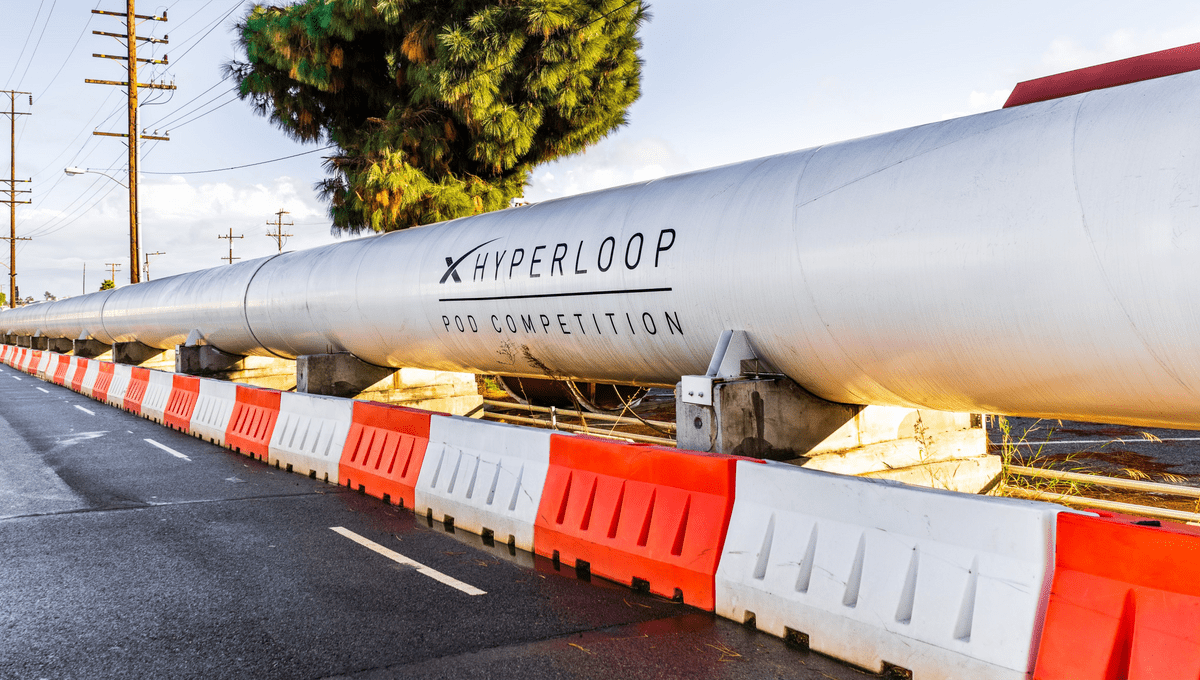
The Controversial Decisions of Elon Musk have been taking up so much of the news cycle over the past week or so that it’s easy to forget how, only a matter of months ago, he was most famous as the guy who once bought a car company and wants to install serfdom on Mars.
At the junction of those two long-standing interests, you can find a project which, despite being around for half a decade at this point, has made headlines relatively rarely. Ever since Musk took to Twitter in 2016 to float the idea of building a giant tunnel under Los Angeles to avoid traffic, his “hyperloop” project has been a constant sideshow for SpaceX, growing from a single tunnel constructed for Musk’s own personal commute, to a potential Mars-mining venture to an actual existing travel system for at least one city.
Now, though, the very first prototype – a piece of tunnel spanning roughly a mile along Jack Northrop Avenue in Hawthorne, California – is gone, soon to be replaced by a collection of parking spaces for SpaceX employees.
“We had a sentimental moment knowing this was going to be taken down,” Erik Wright, the owner of one of the companies involved in the launch of the hyperloop project, told Bloomberg. “Like a memorial service.”
The loss of the prototype tunnel, where past engineering students from around the world were able to test their prowess in annual pod racing competitions, isn’t the only hint that SpaceX’s hyperloop dreams are coming to an end. The decline may be disappointing to those like Wright, for whom the project evidently had sentimental value, but it’s far from unexpected – after all, Musk’s promises for the hyperloop never exactly lived up to the hype.
Originally pitched as a vast 3D network of underground tunnels, free from things like traffic and speed limits, through which travelers of the future could be taken along at 200 kilometers per hour (143 miles per hour) to the destination of their choice, in practice, the hyperloop turned out to be…well, a lot closer to what you’d imagine when you heard the words “like a system of underground tunnels, except smaller, and therefore more dangerous”.
Gone were the maglev shuttles, zooming commuters around at triple-figure speeds: the hyperloop, when it was finally deployed in Las Vegas in July 2021, consisted instead of a fleet of Tesla vehicles, driven by human chauffeurs limited to a chilled-out 64 km/h (40 mph) – assuming you didn’t hit a traffic jam along the way.
In short, it ended up being basically an underground Tesla-proprietary version of Uber or Lyft, except it could only cope with about 800 passengers per hour, and was limited to a select few destinations rather than anywhere you wanted. It must have been fairly embarrassing for the city of Las Vegas, who had granted Musk’s company $52.5 million on the promise of a cheap, futuristic transportation solution that could move up to 4,400 people every hour.
It’s perhaps unsurprising, then, that various other hyperloop pitches have fizzled out since Musk’s very fancy presentation back in 2017. But “one of Musk’s great brilliances is that he’s really good at the drama of unveiling an idea and making that idea seem earth-shattering and amazing,” urban planner Christof Spieler, a Vice President at Huitt-Zollars and lecturer at Rice University in Houston, Texas, told The Fast Company last year.
“He unveiled this technology that was supposed to be pods moving at incredibly high speeds in vacuum tunnels,” he said. “If he had put out a video and said, ‘Imagine a future that’s a tunnel for taxi cabs,’ nobody would have gotten excited.”
With the dismantling of this earliest realization of the project, however – and its accidentally-symbolic replacement with a parking lot for regular, above-ground automobiles – it seems that for now at least, the Musk hyperloop has been shelved indefinitely. Let’s just hope that Musk has something to occupy his time with now that diversion is gone.
Source Link: Elon Musk's First Hyperloop Tunnel Is Gone; Now A Parking Lot